
Playlist my DD made to introduce me to music she thinks I will like
So apparently one stagnates in music listening at about 33 years of age – ie, you don’t really broaden your musical horizons once you hit your 30s. I think this is largely true for me – with any additions to my 60s/ 70s music playlist being because of a live concert I attended, or something I learned in a class or for a performance (hence very experiential), or something my kids made me listen to (that poor Avicii was one of those – so also are Mumford and Sons and Arctic Monkeys and Brendon Urie).
Sometimes my friend Rupa, who has two very trendy young adults at home, sends me recos – Prateek Kuhad was one such name (which I learned later put me in the august company of Barack Obama).
Having said that, when you see a name cropping up in all your kids’ friends’ Instagram pages again and again (yes, I’m stalker mom!), and then see that same name walk away with five Grammies, you know its time to listen to that artist. Hence, on a lazy summer day, I try and search for Billie Eilish (“unapologetically dark, weird, and angsty, Billie Eilish is the anti-pop-star her generation deserves”). DD happens to be looking over my shoulder as I do that, and she says – “ok, listen to “Bad Guy””. And then follows it up with this astounding remark – “Ma, did you know that this video got the most viewed comment on youtube” Huh? What? Say again? This sentence is sooooo weird on so many different levels! A) A comment on youtube gets viewed? Why??? b) It gets viewed (now) 2.9 million times!!!!!!! woah. What’s WRONG with people? C) The comment is – “I’m the bald guy” by Seth Everman – huh???? Duh? Srsly????? D) Why does the whole world know about this???

I BET I’m the only person of my generation who knows this (I tested this hypothesis, and it was true)….
I thought this, combined with the strange times we live in, is a good time to do a follow up on my old post of new words in the dictionary. Many of these are just Gen Z slang that is interesting/ baffling – I have been stuck with one GenZ-er at home during lockdown so have had many educational episodes about this. Some are words that current affairs have given rise to – may even be in existence for a while, but either weren’t topical earlier, or I hadn’t registered them. I should add, they are mostly words or phrases that I have come across recently in my reading, that I have had to google or ask DDs for the meaning of. In some cases, it is words I have known and used, but only recently discovered the interesting origin of.
As I listed them, they kind of naturally fell into a few clusters:
Phrases where meanings can be kind of derived (or at least understood because they are similar to earlier slang)
Lit – When something is amazing, “popping”, high-energy, or otherwise great. It could also be used to mean intoxicated or drunk (boomer equivalent was loaded I guess in that context)
Fam/ Squad – Used to describe those you consider close friends. DD texts on this group of family friends – “Hey fam, see I made lit chicken”.
Fire – Something that is cool (oh well, or hot) and amazing. “The chicken was fire.” The boomer slang equivalent of “fire” is “groovy” – though groovy normally implied music. “That album is groovy.”
Goals – A term used to describe what someone wants in their life (I’ve seen it most often in comments on Insta – “Couple goals, squad goals”, or just “Goals”).
Mood – Used as “same here”/ relatable/ summing up one’s life. Example: “That old man is such a mood.”, or just “mood”! (GenZ is certainly economical with words)
Hangry – Hungry + angry (anger usually a result of the hunger) – every mum knows this one, it just took Gen Z to coin a word for it. I would have also used Slangry (sleepy + angry). (Umm, apparently ”Horngry” is another popular term)
Gucci – Comes from the high-end fashion brand. Another way to say “good,” “chill,” or “awesome.” For example: “Is that fine with you?” “Yeah brother, it’s Gucci.” Incidentally, brother does not mean male sibling – it is just a form of address
Flex – Knowingly flaunt and show off, or, the thing being shown off . “That car’s a flex.”
No cap – Seriously. “I could really do with a burger right now no cap.”
Netflix party – A virtual hangout zone where folks watch the same shows or movies together (I was lulled into thinking one could watch each other like VR or something – much to my disappointment, my daughter watched the same show many miles across a sea, while we watched it at home. The only difference, one could text each other at appropriate moments to say – oooh this scene is so lit!

Hipster Babu
Hipster – While the word can be traced back to the 1930s, with the “hip” person being the one who knew all about, say, jazz; interestingly, for the Gen Z, all millenials are hipsters. Every generation needs a derisive label for their trendy young people – the peace-loving boomers in the 1960s were hippies (some scholars speculate that “hipster” became “hippie,” before then coming back again). But this one is a reverse trend – Millennials in the 2010s became vintage flannel and skinny jean-wearing/ retro-tech loving hipsters. My older daughter, when she had her very annoying “messy bun” hairdo, was called “hipster babu” by my younger daughter and her friends.
 Smol – Extremely small and cute; or, extremely large and cute in an ironic way. Basically, just cute. I always thought this was a bad spelling thing when I saw it on the kids’ posts – but no, its genuine!
Smol – Extremely small and cute; or, extremely large and cute in an ironic way. Basically, just cute. I always thought this was a bad spelling thing when I saw it on the kids’ posts – but no, its genuine!
Doggo/Pupper – Yes, dog – every gen must say ordinary things differently I guess.
Henlo – A dog’s way of saying “hello”.
Queen/Kween – You use this phrase to hype your friends or yourself. “YAAAS QUEEN”
Adulting – its the millenials/ Gen Z doing adult things such as paying bills, getting insurance, getting a job etc. (my older one and her friends constantly bewail adulting. Specially when cooking/ doing laundry)
Finsta – Short for “fake Instagram.” A second Instagram account that someone has, typically used for memes, inside jokes, etc., only for the eyes of close friends. ALL the kids I pride myself on being friends with on Insta, have finstas – and NONE OF THEM accepts my invites for those accounts 😦
 Basic – Refers to someone who is unoriginal and only follows mainstream trends. One has to say this as “ya’ basic” apparently – a famous moment of the Gen Z fave show the Good Place.
Basic – Refers to someone who is unoriginal and only follows mainstream trends. One has to say this as “ya’ basic” apparently – a famous moment of the Gen Z fave show the Good Place.
Can’t even – An expression that denotes various emotional responses when a person can’t comprehend what was said or what’s happening. “Ms. X. is going on and on in English. Zahaan is snoring. Im dying, I can’t even!”
Boujee – Someone who enjoys the lavish and extravagant things in life. One assumes this is derived from Bourgeois/ Bourgeoisie (with similar insulting overtones) – but with nuances of middle class vs. lavish
Flashpacking – Backpacking with a slightly larger budget. Sometimes, also known as “champagne backpacking.”
Mankini – A brief one-piece bathing garment for men, with a T-back. Interestingly, in my old list, I had featured Burquini.
Muffin Top : A roll of fat visible above the top of a pair of women’s tight-fitting low-waisted trousers. (That’s me, even in high waisted not tight fitting trousers)
Grocerant – Any store selling a retail food item that is ready-to-eat or ready-to-heat.
Voluntold – The exact opposite of volunteering. Always used in reference to an unpleasant task to which you have been assigned by your boss. “Her mother voluntold her for the job”
And last, but not the least:
Clap Those Cheeks – A euphemism for sex
Strange Gen Z phrases that I have learnt from DDs/ their friends and my family now uses as common lingo – albeit wrongly very often
 No U – A deflection, NO U is a sarcastic way of pointing out that the Original Poster’s [OP] comments apply more to himself and not to the one he/she/they are trolling. Sometimes is also used kindly – as in Insta, a pretty picture has – “hawwwttttieee”, and then the OP says “No U”.
No U – A deflection, NO U is a sarcastic way of pointing out that the Original Poster’s [OP] comments apply more to himself and not to the one he/she/they are trolling. Sometimes is also used kindly – as in Insta, a pretty picture has – “hawwwttttieee”, and then the OP says “No U”.
OK Boomer : Generation Z’s dismissive response to suggestions from anybody older. A suitable riposte nowadays for Gen Z could be, Ok Zoomer – which is, however, very “cringe”.
Slaps – Positive term for anything cool, but most frequently used to describe a good song: “That song really slaps.”
 Stan – A “stalker fan.” You’re not just a fan; you’re a huge fan on the verge of stalking (but not in a creepy way!). As our friend Gaurav, who loves geeky facts, gleefully told my DD at the end of a Gen Z slang education session, it originated from an Eminem song of the same name. It is however, used more, for some odd reason, with a plural first person pronoun. So, “we stan Sangita auntie”!
Stan – A “stalker fan.” You’re not just a fan; you’re a huge fan on the verge of stalking (but not in a creepy way!). As our friend Gaurav, who loves geeky facts, gleefully told my DD at the end of a Gen Z slang education session, it originated from an Eminem song of the same name. It is however, used more, for some odd reason, with a plural first person pronoun. So, “we stan Sangita auntie”!
Tea – The scoop or gossip. “Spill the tea.” “Tea” is also used when one is agreeing with a point someone has just said. “Last night was a mess. “Tea.” The boomer slang equivalent of “tea” is “the skinny.”
Thicc – Pleasantly plump; curvy in the right places (especially the butt or thighs). This is my favourite Gen Z word – just because a) it applies to me, and b) its so delightful!
VSCO Girl – A really “basic” white girl who usually has a hydro flask and a metal straw; uses terms like “sksksks”; wears shell necklaces, scrunchies, oversized t-shirts, short shorts, and Birkenstocks; and talks a lot about saving the turtles. They’re named after a picture editing app called VSCO (pronounced visco).
Salty – To be “salty” is to be annoyed, upset, or bitter, usually about something minor. The boomer slang equivalent of “salty” is “ticked off.”
Bop/Banger – If a song is really good or enjoyable, it’s a “bop” or a “banger”. The usage is contentious in my household – my VERY boomer husband (even by my standards) has been trying to get this right – with various attempts of – “A, this is a bopping song”, evoking gales of mirth from A
Cancelled – If someone does something the internet deems “problematic”, they are “cancelled”. When Divit was bullying my nephew Ben, the girls said, “Divit is cancelled”. “Trump needs to get cancelled already.” However, Cancel culture = Boycotting/ Removing something or someone out of your life, usually following a controversial or offensive statement. This can get quite toxic as you can imagine

Yeet = Throw Out. Used beautifully by a young friend while teaching History to DD.
Yeet – coming originally from basketball, it meant an exclamation of excitement, approval, surprise, or all-around energy. But now it has morphed to also meaning – “throwing out”.
Abbreviations. Yes, more of! We did say this is the age of economy – “soz” has become a family catchphrase.
Hmu – An acronym for “hit me up” which could refer to hanging out, texting, or talking on the phone.
Fr – Short for for real. Example: “I mean it, fr.”
Tfw – Short for that feel(ing) when. “Tfw you’re ready for lockdown to end but the Corona stat reaches half a million”
W = Short for “win”. “Today I got out of bed at noon and that’s a W for me.”
ITL – “Invited to leave”; that is, firing someone.
UTTR – “Up and to the right”, like a graph of a trend of growth pre Corona
GAFA – Google Amazon Facebook apple
Af = Short for as f**k. Means “extremely”. “I’m tired af.” This one, given the context, I couldn’t even guess at (I kept thinking – after the fact???) – so I asked DD – and she was like, ma, I’m not going to say it!
Idgaf – yes you got it – I don’t give a f@$k. (Also a song by Dua Lipa)
TERFs – Coined in 2008 by Viv Smythe, ‘terf’ is an acronym for trans-exclusionary radical feminist. Implies those who reject that trans women are women, assert the exclusion of trans women from women’s spaces and are opposed to transgender rights legislation. In the spotlight recently due to Rowling’s recent transphobic tweet, ‘Terf’ became the most searched query on Google
Technology led phrases
Pwned – Having origins in video game culture, “pwned” is used to imply that someone has been controlled or compromised (kind of like owned – o and p are next to each other on the keypad). “Have I Been Pwned” is a website that allows Internet users to check whether their personal data has been hacked into.
Ambient computing – Ambient computing refers to technologies that allow people to use a computer without realizing they’re doing it – its a combination of hardware, software, user experience and machine/human interaction and learning – a variety of technologies, including motion tracking, speech recognition, gestures, wearables, and artificial intelligence to achieve this goal.

“Vision” from the Avengers Series – Super Intelligence done well
Super intelligence – An intellect that is much smarter than the best human brains in practically every field, including scientific creativity, general wisdom and social skills. It could be a digital computer, an ensemble of networked computers or cultured cortical tissue. Elon Musk fears it – says could be a immortal dictator/ more dangerous than nuclear warheads. Bill Gates endorses this view.
Slide Into Their DMs – A phrase used to signify that one wants to send a flirtatious message over social media.
@ me next time – This term originated on Twitter, where you could “subtweet” someone, that is, talk about them indirectly. Telling someone to “@” you is telling them to stop being shady and talk to you directly
 Derp – Used as a substitute for speech regarded as meaningless or stupid, or to comment on a foolish or stupid action. Derp is often used for a character or an act (derping) not crucial to the story-telling, primarily in rage comics. Derp comes with facial expressions and has a female counterpart named Derpina.
Derp – Used as a substitute for speech regarded as meaningless or stupid, or to comment on a foolish or stupid action. Derp is often used for a character or an act (derping) not crucial to the story-telling, primarily in rage comics. Derp comes with facial expressions and has a female counterpart named Derpina.
Noob – A person who is inexperienced in a particular sphere or activity, especially computing. The word came from “newbie”. It almost became the millionth word of the English language in 2009, a title that went to “Web 2.0” instead.
Vanity Metrics – Vanity metrics are an outdated form of measurement on social media like the followers on your account or the number of likes on a post.
Micro-moments – The moment that people turn to a device to get immediate information that will help them to make a decision, resolve a problem, buy something or go somewhere.
Seenzone/ Ghosting – Seeing a message but not replying ; if done frequently, normally is a precursor of ghosting – which I ending communication without warning
Topical Phrases
Snowflake Generation – The young adults of the 2010s, viewed as being less resilient, living in a cocoon of righteousness, and more prone to taking offence (hypersensitive) than previous generations. It came from GenX parents calling their children unique (or snowflakes). Now a favoured phrase of some tabloids for expressing generic disdain for young people who are behaving differently from people older than them (young people are having less sex, or drinking less alcohol, or having less fun.)
Fatberg – A very large mass of solid waste in a sewerage system, consisting especially of congealed fat and personal hygiene products that have been flushed down toilets.
Outrospection – (coined by Roman Krznaric) A method in which you get to know oneself by stepping outside of yourself, developing relationships and empathetic thinking with others.
Poverty Porn – also known as development porn, famine porn, or stereotype porn, has been defined as “any type of media, be it written, photographed or filmed, which exploits the poor’s condition in order to generate the necessary sympathy for selling newspapers, increasing charitable donations, or support for a given cause”. Ed Sheeran was unwittingly guilty of poverty porn in his 2017 plea for the poor for Comic Relief, as hero-Ed narrates his sorrow while the camera zooms on nameless children sleeping rough on a beach.
Weasel Words – Words and phrases aimed at creating an impression that something specific and meaningful has been said, when in fact only a vague or ambiguous claim has been communicated.
Some new words in Oxfordenglish dictionary:
Mentionitis – A tendency towards repeatedly or habitually mentioning something, esp. the name of a person one is attracted to or infatuated with, regardless of its relevance to the topic of conversation.
Freegan – A person who believes it is wrong to throw away food when millions of people around the world are hungry. They only eat food they can get for free, which would usually have been thrown out or waste. Often freegans rely on food found in supermarket dumpsters.
Microaggressions – A term used for brief and commonplace daily verbal, behavioural, or environmental indignities, whether intentional or unintentional, that communicate hostile, derogatory, or negative prejudicial slights and insults toward any group, particularly culturally marginalized groups – “for a black person, you are beautiful”. Long ago, a colleague told me, meaning this as a compliment, “you work like a man”.
Gaslighting – Undermine someone by psychological means such that they doubt their own sanity. Oxford Dictionaries named it one of the most popular words of 2018: The phrase originated from a 1938 mystery thriller written by British playwright Patrick Hamilton called Gas Light, made into a popular movie in 1944 starring Ingrid Bergman and Charles Boyer. In the film, husband Gregory manipulates his adoring, trusting wife Paula into believing she can no longer trust her own perceptions of reality. In one pivotal scene, Gregory causes the gaslights in the house to flicker by turning them on in the attic of the house. Yet when Paula asks why the gaslights are flickering, he insists that it’s not really happening and that it’s all in her mind, causing her to doubt her self-perception. Hence the term “gaslighting” was born.
My daughter recently accused me of gaslighting her about her singing – it was not pretty. Trump’s rhetoric , specially about immigration, and the pandemic, has all been gaslighting.
Virtue Signalling – The sharing of one’s point of view on a social or political issue, often on social media, in order to garner praise or acknowledgment of one’s righteousness from others who share that point of view, or to passively rebuke those who do not. In an era where keeping silent is probably as much a crime as expressing your opinion on, say, social media, what demarcates virtue signalling and passionate expression of solidarity?
Red pilling – Becoming enlightened to the truth about reality, especially a truth that is difficult to accept or exposes disillusions. Red pill is especially used among anti-feminist and white supremacist groups to refer to “waking up” to the truth that women and liberal politics are oppressing men and white people. Elon Musk recently tweeted “take the red pill” – arguably indicating a greater rightward shift in his political views.
Colorism – Specially relevant now given HUL’s dropping the word “fair” from its iconic product, colorism is a bit different from racism in that it can refer to prejudge based on shades of colour even amongst the same race – “wanted tall fair educated girl for marriage”
Bi-erasure – Bisexual erasure or bisexual invisibility is the tendency to ignore, remove, falsify, or reexplain evidence of bisexuality.
I must confess a recent blooper of mine in context – not quite having internalised the gender spectrum (with ABC News having found 58 gender option in Facebook’s new move) , I was confused between bisexual and pansexual. Took the DD to explain.
Lumbersexual – A “not-so-manly” man dressing like a lumberjack (although a lot more refined) and sporting a beard that has the volume of a lumberjacks beard and the groom of a hipster, cashing in on the “rugged, outdoor stereotype”. Interestingly enough, my earlier list had gastrosexual.
Holacracy – A system of corporate governance whereby members of a team or business form distinct, autonomous, yet symbiotic, teams to accomplish tasks and company goals. Corporate hierarchy is discarded in favor of a flat organizational structure where all workers have an equal voice while simultaneously answering to the direction of shared authority. Zappos.com, with 1,500 employees, is the largest company to adopt Holacracy
Coronavirus Lexicon.
In this context, the very word pandemic was for me not such a frequently used/ heard one. So also, social distancing, when I first heard it, I thought was witty. Now ofcourse, it’s our way of life. Coronapocalyse/ Coronageddon are kind of obvious. Index Patient and Super Spreader also became common usage. The few new words I found interesting/ funny were:
Infodemic – an excessive amount of information about a problem, which is sometimes incorrect and can have a negative effect on finding a solution
Doom scrolling – constantly refreshing our feeds for the latest news about the pandemic
Miss Rona – Gen Z call the virus itself “Miss Rona” or simply, “The Rona.” IN a bit of gallows humour, it was also more callously called the “Boomer Remover.” Now of course the virus seems less ageist.
Wfh = wifi hell = wear fear heroically
Pancession – a pandemic-associated widespread economic recession
Coronaverse – The now prevailing socio-economic order
Coronanoia – paranoia induced by conditions obtaining in the pandemic
Covidiot / moronavirus – slang insult for someone who disregards healthy and safety guidelines about the novel coronavirus.
Quarantini/ Coronarita – The original quarantini referred to a martini-like cocktail mixed with vitamin C-based dietary supplements. Now these are cocktails made at home with available ingredients
Isobar – a home bar stocked, displayed and/or depleted in confinement
Zoombombing – amid security concerns for zoom, it is basically hacking into. Zoom conference
 Zumping – A blend of dump and Zoom, zumping is when you break up with someone over a video conferencing service.
Zumping – A blend of dump and Zoom, zumping is when you break up with someone over a video conferencing service.
Fomites: inanimate objects whose surfaces can become contaminated with pathogens when touched by the carrier of an infection and can then transmit the pathogens to those who next touch the surfaces
Covexit – The strategy for exiting lockdown
Blursday – An unspecified day because of lockdown’s disorientating effect on time
Infits – outfits worn in conditions of confinement
Quaranqueens – a woman excelling during lockdown, particularly one excessively cleaning and tidying
Smizing – Smiling with the eyes, as when wearing a facemask
Elbump – an elbow contact in place of handshaking or other physical greeting
Coronadodge – swerving to avoid passers-by to comply with distance restrictions
Plain Confusing Phrases (that common sense would tell you should mean something else)
OTP – Not the annoying One Time Password, this one stands for “One True Pairing;” , or, your favourite “ship” (Some 5 years ago, I was the “kween” of an old friends’ reunion, when I explain “ship” to them – Virushka/ Brangelina being the ones they could relate to).
Instagram baddie – A woman who always look flawless.
Let’s Get This Bread! – A pep talk expression similar to “Let’s do this! We got this, guys!”
Sksksksksksksks – the new Gen Z sign of laughter, replacing “hahahaha.” (similar to a fam squad we once had, which due to the initials, was unimaginatively named sknsrkms)
Snacc – An attractive person; someone that looks so good that you want to eat them for a snack.
Fit – Shortened version of outfit. “She had on a fire fit at the party.” The boomer slang equivalent of “fit” is “threads.”
Wig – Something amazing – so shock inciting that one’s wig flies off! (maybe that’s why the “I’m bald guy comment” got viewed so often) The very colourless boomer slang equivalent of “wig” maybe, is “fab”?
Creps – Not something you eat, it’s Sneakers.
Dank – Not dark, but of high quality. For example: “Did you see those dank memes I sent you?”
Dzaddy – an attractive man. (“Did you see how good he looks today?” “Yeah, what a dzaddy!” ) Electra complex, much?
G – A term of endearment you’d use with a friend or acquaintance. “What’s up my G?” Short for “gangster” or “gangsta”. Huh??? Really?
Hard – When something is really cool. “Have you seen his new shoes?” “Yeah those are hard!” Same as Lit or Fire, but less comprehensible in usage
E-boy/-girl – Gen Z’s hybrid version of emo/goth. A style that includes wearing a lot of black, neon and chains, drawing small black hearts drawn under their eyes, using a lot of blush, and having bangs. Millennials usually think the “e” stands for emo, but it actually stands for “electronic”.
As I was finishing up this list, I chanced upon the New words in Oxford English dictionary. Some that I did not know of (and could never have figured out) are:
Bagel – To beat (an opponent) by a score of six games to love in a set.
Chop-chop – Bribery and corruption in public life; misappropriation or embezzlement of funds.
Franger – A condom
Noonie – The female genitals; the vulva or vagina (mainly Brit usage)
Jam – Among homosexual people, designating a heterosexual person
Tokunbo – Denoting an imported second-hand product, esp. a car

My UFO – a memory blanket
UFO – In knitting, sewing, quilting, etc, an unfinished piece of work; a project left uncompleted.
As I end this long list, I thought of who would appreciate this post – and I realised that it probably will be folks of my generation really. I found this news item about a teacher who compiled a list of Gen z slang very relatable. – teaching done right
Ofcourse, Gen Z is not the only gen with slangs – in the spirit of weasel words, Boomers probably invented meaningless corporate speak. Infact my DD gets her own back on bopping/ bantering dad when she gets him with #thematic #skininthegame.
As Eilish would say, “Don’t say thank you or please; I do what I want when I’m wanting to”
Tags: billie eilish, coronavirus lexicon, gen z slang, genz, new words, Prateek kuhad, Seth everman, TERF, yeet

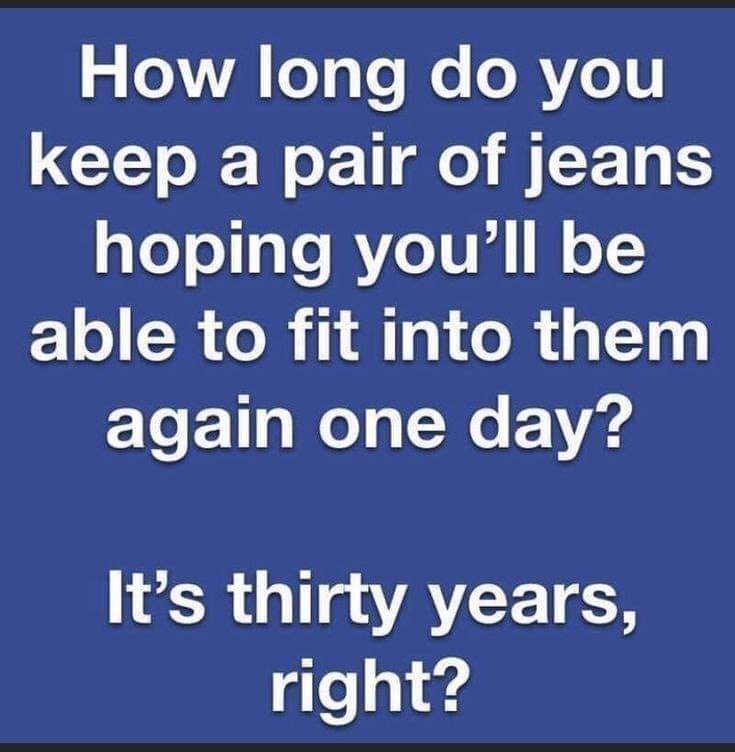
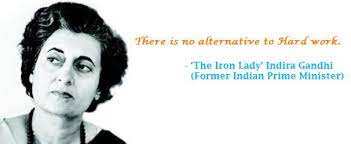
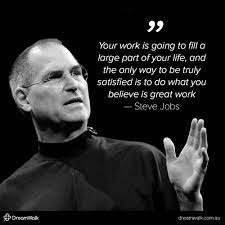




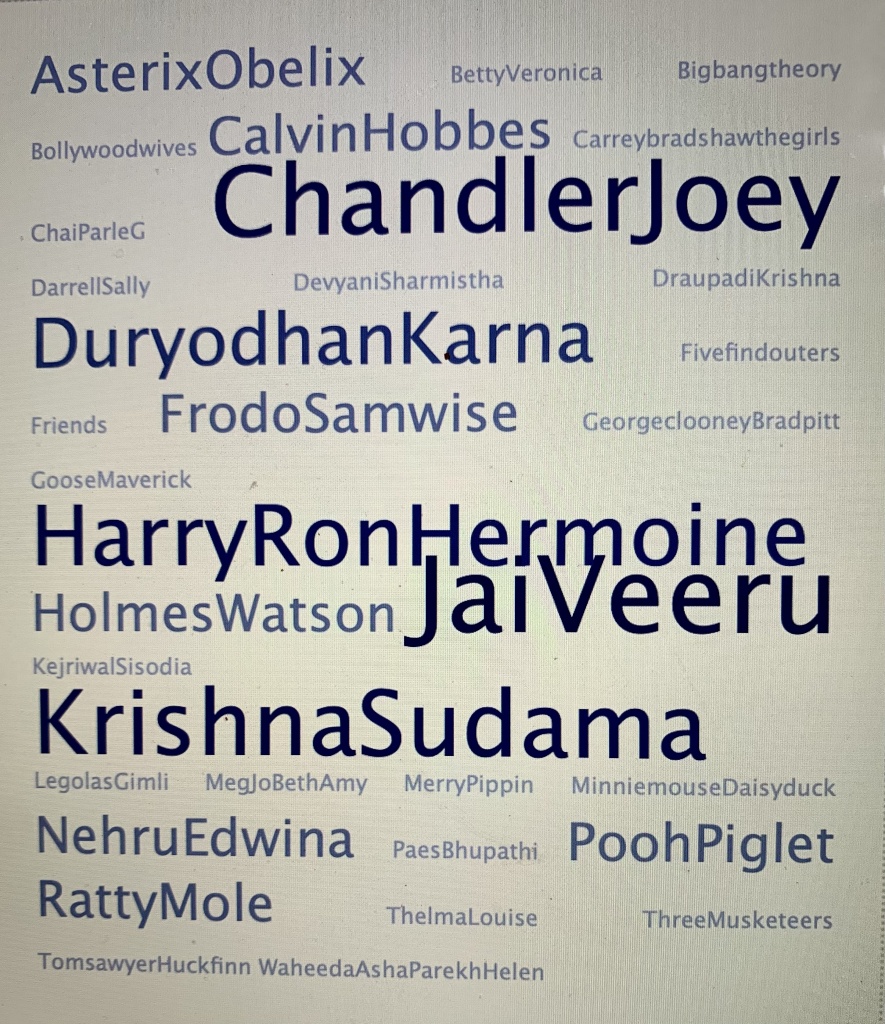
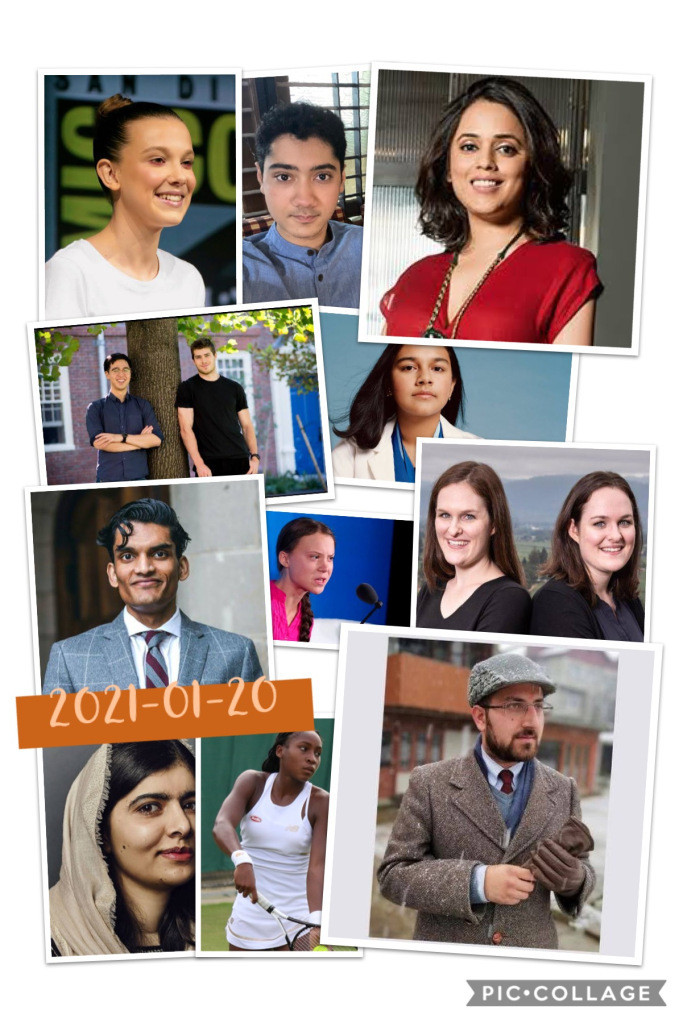





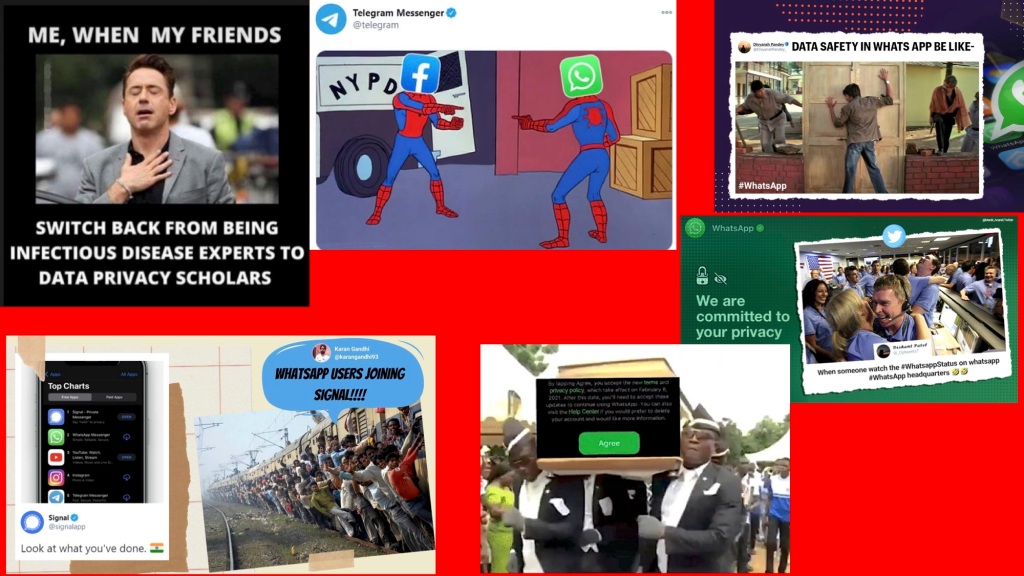









 Smol – Extremely small and cute; or, extremely large and cute in an ironic way. Basically, just cute. I always thought this was a bad spelling thing when I saw it on the kids’ posts – but no, its genuine!
Smol – Extremely small and cute; or, extremely large and cute in an ironic way. Basically, just cute. I always thought this was a bad spelling thing when I saw it on the kids’ posts – but no, its genuine! Basic
Basic No U – A deflection, NO U is a sarcastic way of pointing out that the Original Poster’s [OP] comments apply more to himself and not to the one he/she/they are trolling. Sometimes is also used kindly – as in Insta, a pretty picture has – “hawwwttttieee”, and then the OP says “No U”.
No U – A deflection, NO U is a sarcastic way of pointing out that the Original Poster’s [OP] comments apply more to himself and not to the one he/she/they are trolling. Sometimes is also used kindly – as in Insta, a pretty picture has – “hawwwttttieee”, and then the OP says “No U”. Stan – A “stalker fan.” You’re not just a fan; you’re a huge fan on the verge of stalking (but not in a creepy way!). As our friend Gaurav, who loves geeky facts, gleefully told my DD at the end of a Gen Z slang education session, it originated from an Eminem song of the same name. It is however, used more, for some odd reason, with a plural first person pronoun. So, “we stan Sangita auntie”!
Stan – A “stalker fan.” You’re not just a fan; you’re a huge fan on the verge of stalking (but not in a creepy way!). As our friend Gaurav, who loves geeky facts, gleefully told my DD at the end of a Gen Z slang education session, it originated from an Eminem song of the same name. It is however, used more, for some odd reason, with a plural first person pronoun. So, “we stan Sangita auntie”!

 Derp – Used as a substitute for speech regarded as meaningless or stupid, or to comment on a foolish or stupid action. Derp is often used for a character or an act (derping) not crucial to the story-telling, primarily in rage comics. Derp comes with facial expressions and has a female counterpart named Derpina.
Derp – Used as a substitute for speech regarded as meaningless or stupid, or to comment on a foolish or stupid action. Derp is often used for a character or an act (derping) not crucial to the story-telling, primarily in rage comics. Derp comes with facial expressions and has a female counterpart named Derpina. Zumping – A blend of dump and Zoom, zumping is when you break up with someone over a video conferencing service.
Zumping – A blend of dump and Zoom, zumping is when you break up with someone over a video conferencing service.

 From Trump rooting for the wall separating the U.S. and Mexico, Mexico is now shutting its borders to the U.S. All of history, the underdeveloped/ underdogs African countries are now moving to restrict visitors from Europe and the world.
From Trump rooting for the wall separating the U.S. and Mexico, Mexico is now shutting its borders to the U.S. All of history, the underdeveloped/ underdogs African countries are now moving to restrict visitors from Europe and the world.



